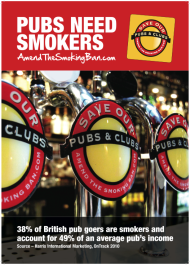Fascinating though it has been to read about Jeremy Paxman's problems with his M&S pants, the Telegraph put the matter in perspective with THIS suitably ascerbic profile. That said, I would have preferred the Telegraph to ignore the "story" altogether. Here's why:
I'm all for a bit of banter, a little note of levity, but when there are so many issues that deserve proper debate and investigation, doesn't it strike you as odd that Britain's most famous political interviewer should make the news not for a challenging, one-on-one interview with a leading politician, but because he has chosen (in his own time, presumably) to complain about the condition of his underwear.
A conspiracy theorist might conclude that this was as good a way as any to deflect attention from Gordon Brown's problems - Northern Rock, Peter Hain et al. But I'm not a conspiracy theorist.
On a related issue, I have been giving The Spectator a great deal of thought. You see, I have bought the magazine every week since 1975 when I was still at school. A creature of habit, I like to buy it on a Friday afternoon and head to the nearest coffee shop where I can immerse myself for an hour or two.
But not any more. These days I can read all that's worth reading in five minutes. Each week I should be able to thrill to the sound of knives being sharpened and blades being twisted into the heart of this illiberal, intolerant regime.
Instead, there are some weeks when there is hardly ANY politics in The Spectator. Check it out. Even revered commentators like Matthew Parris do everything they can not to mention politics at all. The Spectator Diary? Vanity publishing at its worst. Diary of a Notting Hill Nobody? Ugh!! Elsewhere, regular columnists fall over themselves to write about the one thing they love more than anything else - themselves. "Me! Me! Me!" their columns shriek. "Look at me! Look at me! Look at me!"
Above its masthead The Spectator currently boasts: CURRENT AFFAIRS MAGAZINE OF THE YEAR. Who on earth gave it this ill-judged title? Did they actually read the magazine or were they seduced by the circulation (the largest in its long and distinguished history) and the glossy advertisements for expensive watches and luxury cars?
I don't want agitprop. I want some semblance of style - elegant articles written with wit and humour - and an eclectic range of subjects including the arts and popular culture. But a political magazine has to have substance otherwise it's an empty vessel devoid of purpose. You can't even say The Spectator is attractive to the eye. The New Statesman - and I never thought I would say this - has improved out of all recognition and visually makes its rival look dull and one-dimensional.
The rot started a decade or so ago and it's got worse and worse. Current editor Matthew D'Ancona seems far more interested in writing about Led Zeppelin and Joy Division. Perhaps he should apply for a job at Q magazine. This week the magazine introduced a "new occasional column on technology and the web". Why? My advice: save yourself £2.95 a week and check out the magazine's far livelier website (HERE). Or buy The Week.
On television Newsnight, our premier current affairs programme, is almost as bad. Reports by political editor Michael Crick often say more about him than the subject he is "investigating". Who does he think he is? Dom Joly? As for our old friend Jeremy Paxman - I'm sorry, Jeremy, you used to enliven my evenings with your forensic grilling of the political elite. Now, like The Spectator, you're just pants.
 Thursday, January 31, 2008
Thursday, January 31, 2008  Bully State,
Bully State,  People
People 










